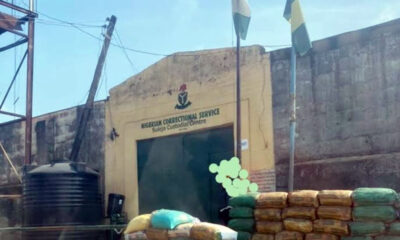International
Wikileaks founder Julian Assange to leave prison after US plea deal

Wikileaks founder Julian Assange to leave prison after US plea deal
After a years-long legal saga, Wikileaks says that founder Julian Assange has left the UK after reaching a deal with US authorities that will see him plead guilty to criminal charges and go free.
Assange, 52, was charged with conspiracy to obtain and disclose national defence information.
For years, the US has argued that the Wikileaks files – which disclosed information about the Iraq and Afghanistan wars – endangered lives.
Assange spent the last five years in a British prison, from where he was fighting extradition to the US.
According to CBS, the BBC’s US partner, Assange will spend no time in US custody and will receive credit for the time spent incarcerated in the UK.
Assange will return to Australia, according to a letter from the justice department.
On X, the platform formerly known as Twitter, Wikileaks said that Assange left Belmarsh prison on Monday after 1,901 days in a small cell.
He was then “released at Stansted airport during the afternoon, where he boarded a plane and departed the UK” to return to Australia, the statement added.
Video shared online by Wikileaks appear to show Assange, dressed in jeans and a blue shirt, being driven to Stansted before boarding an aircraft.
The BBC has been unable to independently verify the video.
His wife, Stella Assange, tweeted thanks to his supporters “who have all mobilised for years and years to make this come true”.
READ ALSO:
- Security: FAAN sends armed special force to five airports
- Missing Ogun pregnant woman found in Kwara, faked kidnap – Police
- Napoli plans to slash asking price for Victor Osimhen
The deal – which will see him plead guilty to one charge – is expected to be finalised in a court in the Northern Mariana Islands on Wednesday, 26 June.
The remote Pacific islands, a US commonwealth, are much closer to Australia than US federal courts in Hawaii or the continental US.
Agence France Press quoted a spokesperson for Australia’s government as saying that the case had “dragged on for too long”.
His attorney, Richard Miller, declined to comment when contacted by CBS. The BBC has also contacted his US-based lawyer.
He and his lawyers had long claimed that the case against him was politically motivated.
In April, US President Joe Biden said that he was considering a request from Australia to drop the prosecution against Assange.
In a victory the following month, the UK High Court ruled that Assange could bring a new appeal against extradition to the US, allowing him to challenge US assurances over how his prospective trial would be conducted and whether his right to free speech would be infringed.
After the ruling, his wife Stella told reporters and supporters that the Biden administration “should distance itself from this shameful prosecution”.
US prosecutors had originally wanted to try the Wikileaks founder on 18 counts – mostly under the Espionage Act – over the release of confidential US military records and diplomatic messages related to the wars in Afghanistan and Iraq.
READ ALSO:
- Security: FAAN sends armed special force to five airports
- Missing Ogun pregnant woman found in Kwara, faked kidnap – Police
- Napoli plans to slash asking price for Victor Osimhen
Wikileaks, which Assange founded in 2006, claims to have published over 10 million documents in what the US government later described as “one of the largest compromises of classified information in the history of the United States”.
In 2010, the website published a video from a US military helicopter which showed more than a dozen Iraqi civilians, including two Reuters news reporters, being killed in Baghdad.
One of Assange’s most well-known collaborators, US Army intelligence analyst Chelsea Manning, was sentenced to 35 years in prison before then-president Barack Obama commuted her sentence in 2017.
Assange also faced separate charges of rape and sexual assault in Sweden, which he denied.
He spent seven years hiding in Ecuador’s London embassy, claiming the Swedish case would lead him to be sent to the US.
Swedish authorities dropped the case in 2019 and said that too much time had passed since the original complaint, but UK authorities later took him into custody. He was tried for not surrendering to the courts to be extradited to Sweden.
Even amid long-running legal battles, Assange has rarely been seen in public and for years has reportedly suffered from poor health, including a small stroke in prison in 2021.
Wikileaks founder Julian Assange to leave prison after US plea deal
International
Kuwait flight hostages sue British Airways, UK govt
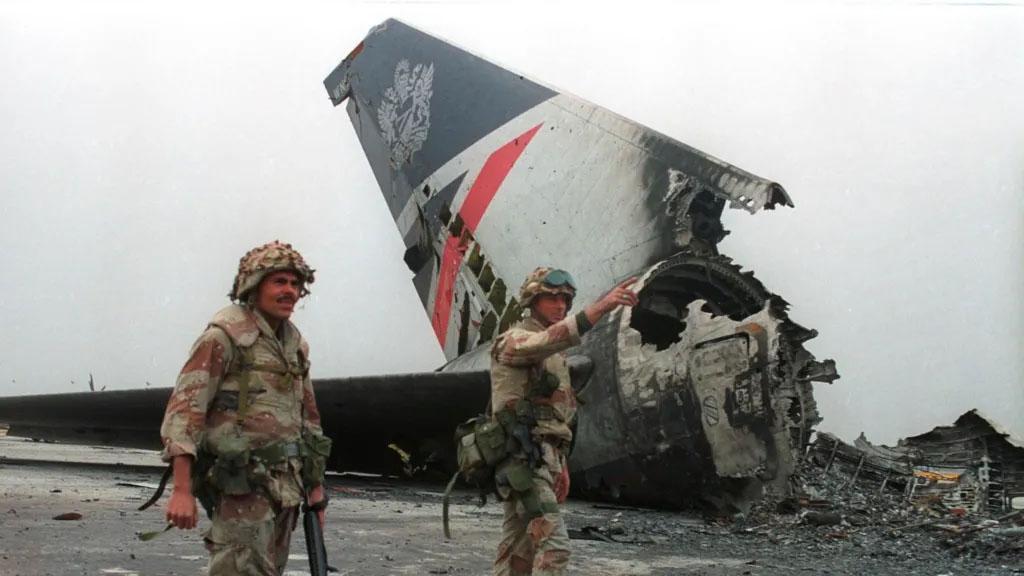
Kuwait flight hostages sue British Airways, UK govt
Passengers and crew held hostage after a 1990 British Airways flight landed are suing the airline and the UK government for “deliberately endangering” them.
They claim BA and the government knew Iraq had invaded Kuwait before the plane they were travelling on landed in the country.
The 367 passengers and crew of BA Flight 149 were taken hostage, and some were mistreated, seriously sexually assaulted and kept in near-starvation conditions.
The claimants believe those on board were put at risk so an intelligence-gathering mission could take place, an allegation which has been denied for 30 years.
Ninety-four people, either passengers or crew on board Flight 149 or BA crew already in Kuwait awaiting deployment, are behind the civil action alleging the UK government and BA were guilty of negligence and joint misfeasance in public office.
It is the latest step in a long battle to get answers as to what happened during Iraq’s invasion of Kuwait in 1990.
On the evening of 1 August 1990, BA Flight 149 took off from London’s Heathrow Airport with a planned stop in Kuwait on its way to Malaysia.
Iraqi troops were already massing on the border with Kuwait ahead of an invasion of the country that night. But the flight was not diverted from stopping in Kuwait.
The claimants say no other airline allowed its planes to land after the invasion began. By the time Flight 149 landed on the morning of 2 August, there was rocket fire near the airport as Iraqi forces took control.
READ ALSO:
- BREAKING: Pilot survives as NAF helicopter crashes in Kaduna
- UK cab driver confesses still getting paid in Nigeria as civil servant
- Police rescue 2 kidnapped victims in Abuja
The plane was evacuated and unable to take off. Those on board were taken hostage.
Some were released quickly, but others suffered mistreatment and were used by Iraq as human shields at key facilities to try to prevent Western forces bombing them.
Passengers and crew held hostage after a 1990 British Airways flight landed are suing the airline and the UK government for “deliberately endangering” them.
They claim BA and the government knew Iraq had invaded Kuwait before the plane they were travelling on landed in the country.
The 367 passengers and crew of BA Flight 149 were taken hostage, and some were mistreated, seriously sexually assaulted and kept in near-starvation conditions.
The claimants believe those on board were put at risk so an intelligence-gathering mission could take place, an allegation which has been denied for 30 years.
Ninety-four people, either passengers or crew on board Flight 149 or BA crew already in Kuwait awaiting deployment, are behind the civil action alleging the UK government and BA were guilty of negligence and joint misfeasance in public office.
It is the latest step in a long battle to get answers as to what happened during Iraq’s invasion of Kuwait in 1990.
On the evening of 1 August 1990, BA Flight 149 took off from London’s Heathrow Airport with a planned stop in Kuwait on its way to Malaysia.
Iraqi troops were already massing on the border with Kuwait ahead of an invasion of the country that night. But the flight was not diverted from stopping in Kuwait.
The claimants say no other airline allowed its planes to land after the invasion began. By the time Flight 149 landed on the morning of 2 August, there was rocket fire near the airport as Iraqi forces took control.
READ ALSO:
- Gunmen abduct 20 travellers along Sagamu-Ijebu-Ode expressway
- Saudi club Al-Ittihad woo Ademola Lookman with €11m salary
- Six Palestinians killed as Israeli forces pound southern, northern Gaza
The plane was evacuated and unable to take off. Those on board were taken hostage.
Some were released quickly, but others suffered mistreatment and were used by Iraq as human shields at key facilities to try to prevent Western forces bombing them.
At the centre of the claim is the allegation the UK government and BA received a series of warnings during the night but did not act on them.
It is alleged that one reason for this was the desire of the government to insert a special forces team who could carry out reconnaissance within the country.
Stephen Davis wrote a book about the incident and says he has interviewed members of the team anonymously.
He believes the authorities did not expect the airport to fall to invading Iraqi forces so quickly and the intention was for the men to disembark before the plane went on to its next destination.
The BA cabin services director on the flight previously told the BBC that a British man in military uniform greeted him at the plane’s door on arrival in Kuwait.
The man said he had come to meet 10 men on the flight who had boarded at Heathrow. They were brought to the front, disembarked and were never seen again. But by then, it was too late for the plane to leave.
A UK official serving in the Kuwait embassy at the time previously said he believed there had been a “deniable” operation to hastily put boots on the ground without the full knowledge of the embassy.
Anthony Paice was responsible for political intelligence, a role widely assumed to be cover for MI6.
“I am convinced that the military intelligence exploitation of British Airways Flight 149 did take place, despite repeated official denials,” he told the BBC in his first interview in 2021.
In November 2021, the Foreign Office admitted that Parliament and the public were misled for decades about Flight 149.
Newly released files revealed the British ambassador in Kuwait did warn the Foreign Office about the invasion, but BA was not told.
However, then-Foreign Secretary Liz Truss reiterated earlier denials that the flight was being used for a secret intelligence mission.
“There must be closure and accountability to erase this shameful stain on the UK’s conscience,” said Matthew Jury, from the law firm behind the claim, McCue Jury and Partners.
A Cabinet Office spokesperson said the government did not comment on ongoing legal matters. BA did not respond to a request for comment.
Kuwait flight hostages sue British Airways, UK govt
BBC
International
Six Palestinians killed as Israeli forces pound southern, northern Gaza
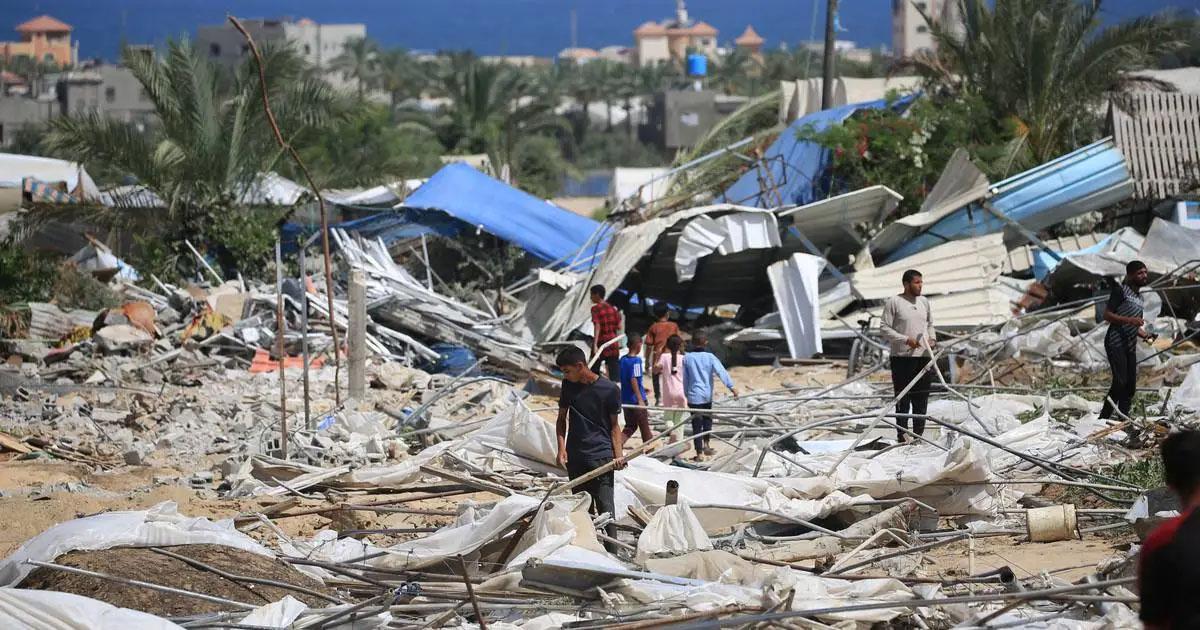
Six Palestinians killed as Israeli forces pound southern, northern Gaza
At least six Palestinians have been killed in Gaza’s southern city of Rafah, according to the Palestine Red Crescent Society (PRCS), and several homes have been destroyed as Israeli forces pushed deeper into the city and pressed further into Shujayea in northern Gaza.
Israeli tanks, which re-entered Shujayea four days ago, fired shells towards several houses, leaving families trapped inside and unable to leave, residents said.
The United Nations Office for the Coordination of Humanitarian Affairs (OCHA) estimated that “60,000 to 80,000 people were displaced” from Shujayea in recent days.
For those who remain, “our lives have become hell”, said 50-year-old resident Siham al-Shawa.
She told the AFP news agency that people were trapped as strikes could happen “anywhere” and “it is difficult to get out of the neighbourhood under fire”.
“We do not know where to go to protect ourselves,” she said.
Al Jazeera’s Tareq Abu Azzoum, reporting from Deir el-Balah, said residents who managed to flee the neighbourhood say the scale of destruction is “massive”.
International
One killed, five injured in France wedding attack
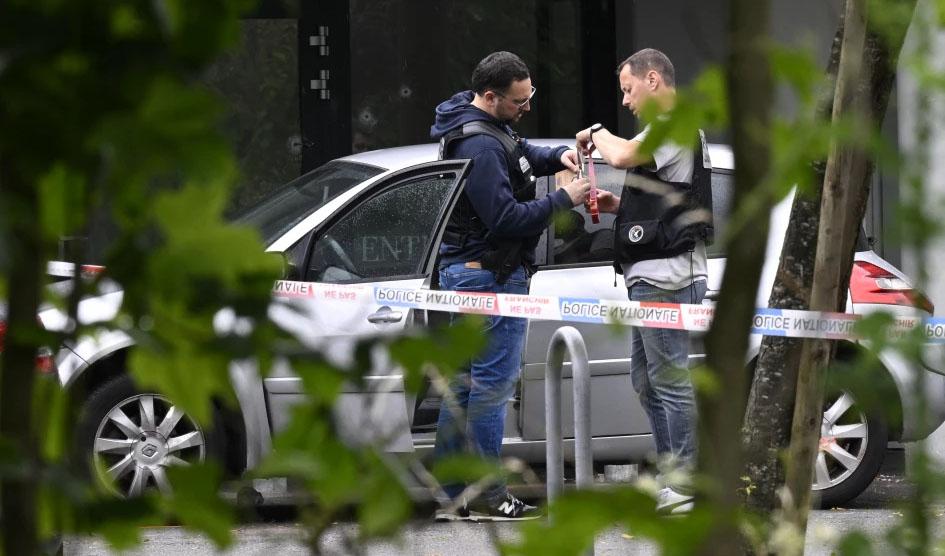
One killed, five injured in France wedding attack
One person was killed and five others sustained gunshot wounds in northeastern France when several masked gunmen opened fire at a wedding ceremony, police sources said on Sunday.
According to sources, the incident in the northeastern city of Thionville was the result of a drug trafficking dispute.
According to an AFP report, the shooting took place overnight, from Saturday to Sunday, in a reception hall with approximately 100 individuals present.
Two people were gravely injured, and one was in critical condition.
The perpetrators of the shooting, however, fled the scene.
READ ALSO:
- Auto assemblers seek N100bn intervention fund for vehicle acquisition
- Rain wreaks havoc in Yobe, 3 dead, 50 houses destroyed
- Ondo, Ekiti face two months of power outage
“It was during a wedding,” a police source said.
“At a quarter past one in the morning, a group of people went outside to smoke in front of the hall, and then three heavily armed men arrived and opened fire in their direction.”
According to the informant, the intruders arrived in a 4×4 vehicle, “probably a BMW.” It was unclear where the vehicle had come from.
Thionville is located near the borders of Luxembourg and Germany. Law enforcement officials suspect that the violence was motivated by a desire to settle scores related to narcotics trafficking.
“The wedding was not targeted as such; it was people who were at the wedding,” a source told me.
On Sunday morning, a bullet-pierced glass door was seen at the scene. In the nearby village of Villerupt, five individuals were injured in May 2023 during shootings between rival gangs at a drug distribution site.
One killed, five injured in France wedding attack
-

 metro2 days ago
metro2 days agoCourt stops Soun of Ogbomoso from removing Chief Imam
-

 News3 days ago
News3 days agoTenure of FCT council chairmen will expire in 2026 – INEC
-
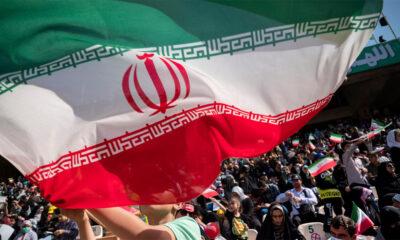
 International2 days ago
International2 days agoIran threatens Israel over ‘planned attack’ on Lebanon
-

 metro3 days ago
metro3 days agoI lost over N10m to Abuja market fire, trader laments
-

 metro2 days ago
metro2 days agoCourt remands man for defiling eight-year-old daughter in Ondo
-

 News2 days ago
News2 days agoOlubadan: Makinde to present staff of office to Olakulehin, July 12
-
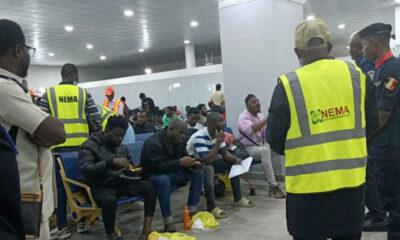
 News2 days ago
News2 days ago103 Nigerians deported from Turkey speak on experiences
-

 metro2 days ago
metro2 days agoMan jailed 14 years in Bayelsa for impregnating daughter









